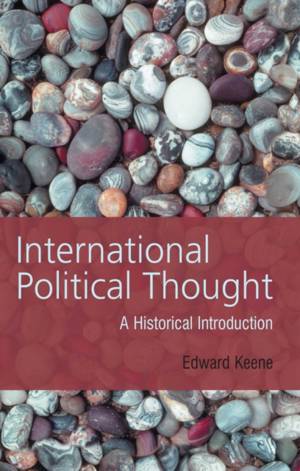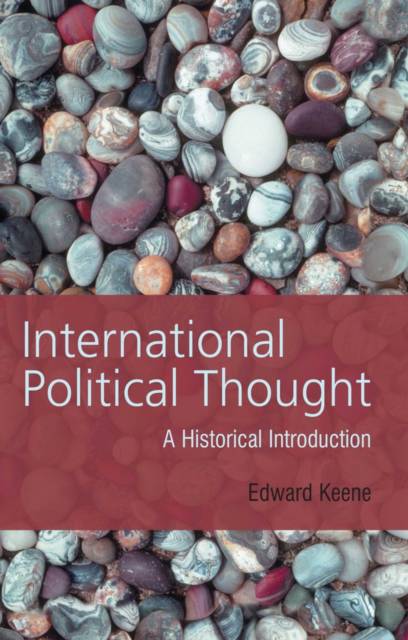
- Afhalen na 1 uur in een winkel met voorraad
- Gratis thuislevering in België vanaf € 30
- Ruim aanbod met 7 miljoen producten
- Afhalen na 1 uur in een winkel met voorraad
- Gratis thuislevering in België vanaf € 30
- Ruim aanbod met 7 miljoen producten
Zoeken
€ 42,95
+ 85 punten
Omschrijving
This volume offers an accessible and wide-ranging introduction to the history of international political thought.
Taking as its starting-point the various concepts people have used to think about differences between political communities, the book explores changing perceptions of international politics from antiquity to the twentieth century. As well as discussing well-known themes such as relations between independent sovereign states and the tension between raison d'etat and a universal code of natural law, it also examines less familiar ideas which have influenced the development of international political thought such as the distinction between civilization, national culture and barbarism, religious attitudes towards infidels, and theories about racial difference and imperialism. Among the key thinkers covered are Thucydides, Machiavelli, Hobbes, Kant, Marx and Morgenthau, alongside less commonly studied figures such as Herodotus, Pope Innocent IV, Herder, Constant and Zimmern. Each chapter concludes with a guide to further reading which will help students to develop a more detailed understanding of the subject.
Written with the beginner student in mind, this lively textbook is an ideal introduction for anyone studying international political thought.
Taking as its starting-point the various concepts people have used to think about differences between political communities, the book explores changing perceptions of international politics from antiquity to the twentieth century. As well as discussing well-known themes such as relations between independent sovereign states and the tension between raison d'etat and a universal code of natural law, it also examines less familiar ideas which have influenced the development of international political thought such as the distinction between civilization, national culture and barbarism, religious attitudes towards infidels, and theories about racial difference and imperialism. Among the key thinkers covered are Thucydides, Machiavelli, Hobbes, Kant, Marx and Morgenthau, alongside less commonly studied figures such as Herodotus, Pope Innocent IV, Herder, Constant and Zimmern. Each chapter concludes with a guide to further reading which will help students to develop a more detailed understanding of the subject.
Written with the beginner student in mind, this lively textbook is an ideal introduction for anyone studying international political thought.
Specificaties
Betrokkenen
- Auteur(s):
- Uitgeverij:
Inhoud
- Aantal bladzijden:
- 240
- Taal:
- Engels
Eigenschappen
- Productcode (EAN):
- 9780745623054
- Verschijningsdatum:
- 1/12/2005
- Uitvoering:
- Paperback
- Formaat:
- Trade paperback (VS)
- Afmetingen:
- 154 mm x 228 mm
- Gewicht:
- 358 g

Alleen bij Standaard Boekhandel
+ 85 punten op je klantenkaart van Standaard Boekhandel
Beoordelingen
We publiceren alleen reviews die voldoen aan de voorwaarden voor reviews. Bekijk onze voorwaarden voor reviews.











